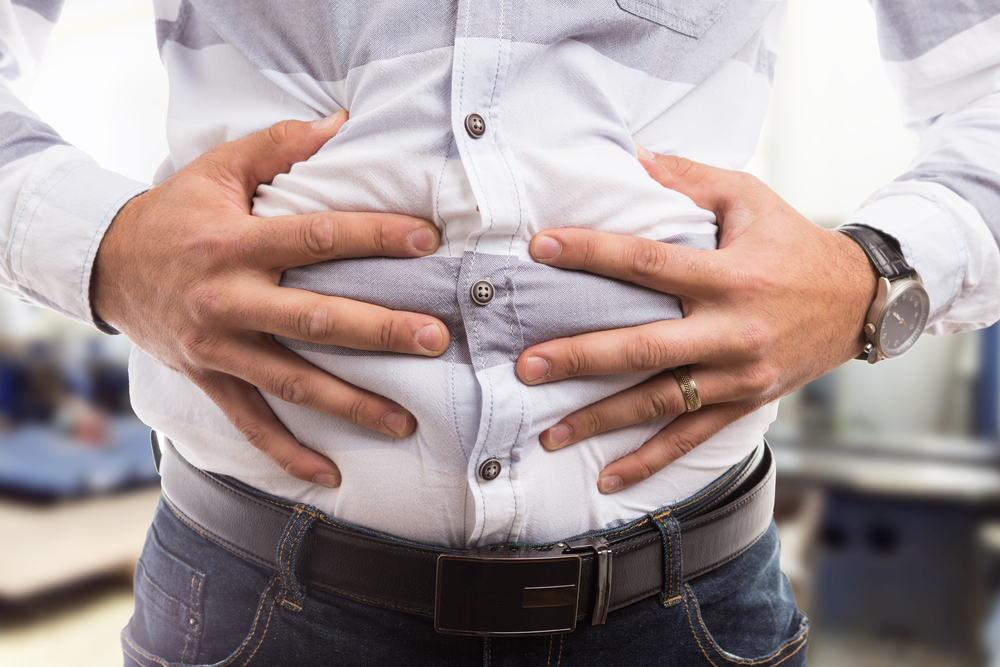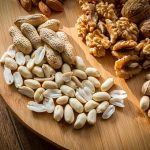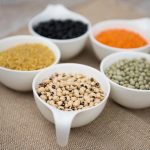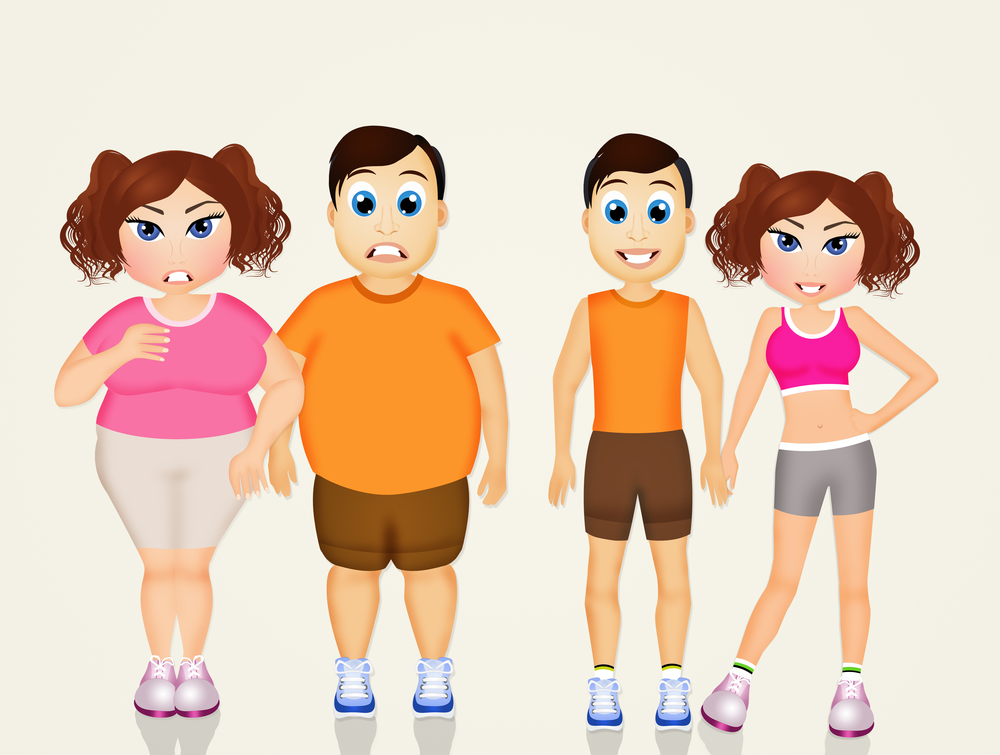Is your belly holding you back from wearing some of the clothes in your closet? Belly bloat is not belly fat it is usually from trapped gas or water. Belly bloat is not pleasant but it is generally temporary. Belly bloat can cause discomfort but can also point to something that is going with your health.
One out four people deal with occasional belly bloat. The pain can even send some people to the emergency room. Ten percent of people have belly bloat regularly. If you fall into the regular crowd you need to put your detective hat on and figure out the cause and find a solution.
Lets review some common causes of belly bloat and common solutions to help eliminate this inconvenient problem.
Causes
Most belly bloat is caused by excess gas, water retention, digestive issues, hormones and food intolerances.
Menstruation is a cause of belly bloat. 75% of women experience bloating before and during their period. Estrogen causes water retention.
Lactose intolerance can cause gas, terrible belly pain and bloating. Dairy foods like milk, cheese and ice cream all contain the dairy sugar lactose.
Swallowing air when you sip drinks with a straw can also cause excess gas and belly bloat.
Carbonated drinks make you bloaty and gassy.
Eating too fast can also inhibit digestion and cause bloating.
Overeating can cause you to bloat. Think of how you feel after a big Thanksgiving dinner. Super stuffed and very bloaty. Your stomach is about the size of your fist, however, it can stretch.
Your body needs salt to function. Too much sodium causes the body to retain more water leading to belly bloat. To much sodium can also be a risk factor for high blood pressure. Prepackaged, processed, and fast foods all contain hidden sodium. Even though a food isn’t salty it can still contain salt. Read labels and be smart about watching your sodium intake.
Carbohydrates can cause you to retain water. Carbohydrates are quickly turned into fuel for your body.
Solutions
The key to stopping belly bloat is understanding what is causing your specific bloat.
Boost your probiotics. Balanced gut bacteria is important for good digestive health. Probiotics help you digest your food and absorb excess gas. You can increase your good gut bacteria by eating yogurt or taking a probiotic supplement.
Consuming more ginger is another bloat-reducing trick. You can drink it as a tea or eat it fresh.
Drink herbal teas like peppermint, chamomile, or turmeric. These herbs specifically help process gas.
Get adequate magnesium. Magnesium can neutralize stomach acid, and has a laxative effect.
To avoid overeating bloat stop eating before you feel full.
Drink more water. Even if you are retaining water, drinking more water can help. Water can help you feel full so you won’t overeat. Water also helps digestion and prevent constipation.
Increase physical activity. Physical activity and exercise help your digestion move things along. Take the stairs instead of the elevator, park further from the store and walk, or instead of TV watching go for a short walk. You get the idea, up your activity level.
Increase the amount of fiber you eat. Fiber promotes good bacteria in your gut. Psyllium husks are a popular fiber supplement. That is a good a thing. Sometimes too much fiber can cause gas and make you have belly bloat however, fiber cleans out your digestive tract and in the long run a digestive track that is clean will cause less bloating.
Make good choices about what to eat and avoid processed foods. Processed foods are generally high in sodium and fat. Fat is slow to move through your digestive system and sodium can lead to water retention.
Keeping a food journal can help you notice foods and patterns of bloating. This can help you self identify foods or problem areas to avoid.
Complications
If you are chronically bloated you may need to visit your health care professional. Talk to your doctor about your bloating symptoms. Write down your symptoms and any possible triggers that you can ascertain.
If your bloating get worse, is persistent, or is accompanied by fever, vomiting or bleeding you need to get in to your doctor.
Chronic constipation can be a sign of Irritable Bowel Syndrome. IBS will need medical treatment.
Takeaway
Fat isn’t always the culprit when it comes to extra inches around the midsection. Extra pooch around the mid-section can be a bloated belly. Bloating is not fat. It is air or gas that collects in your gut and causes the stomach to feel tight, full and swollen. To determine the solution to rid yourself of bloat you must identify the cause. Keeping a journal of foods and symptoms can often help you come with what is causing your discomfort. Once you know the cause you can find a solution.
Seek professional help if you have repeated bloating that isn’t improving with lifestyle changes or is accompanied by fever or other bodily aches and pains. You could have a condition like IBS that will need medical attention.
Bloated, upset stomach, or even gas pains? Try Purium’s Aloe Digest the all natural way to restore balance!
What is causing this belly bloat and what should I do about it? Find help! #HealthSurgeon
Read More: Why are Probiotics Necessary?
Sources:
https://my.clevelandclinic.org/health/symptoms/21740-bloated-stomach
https://www.webmd.com/digestive-disorders/ss/slideshow-bloating-reasons
https://www.hopkinsmedicine.org/health/wellness-and-prevention/bloating-causes-and-prevention-tips









